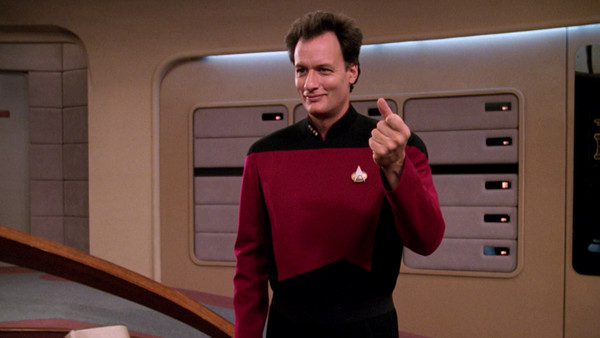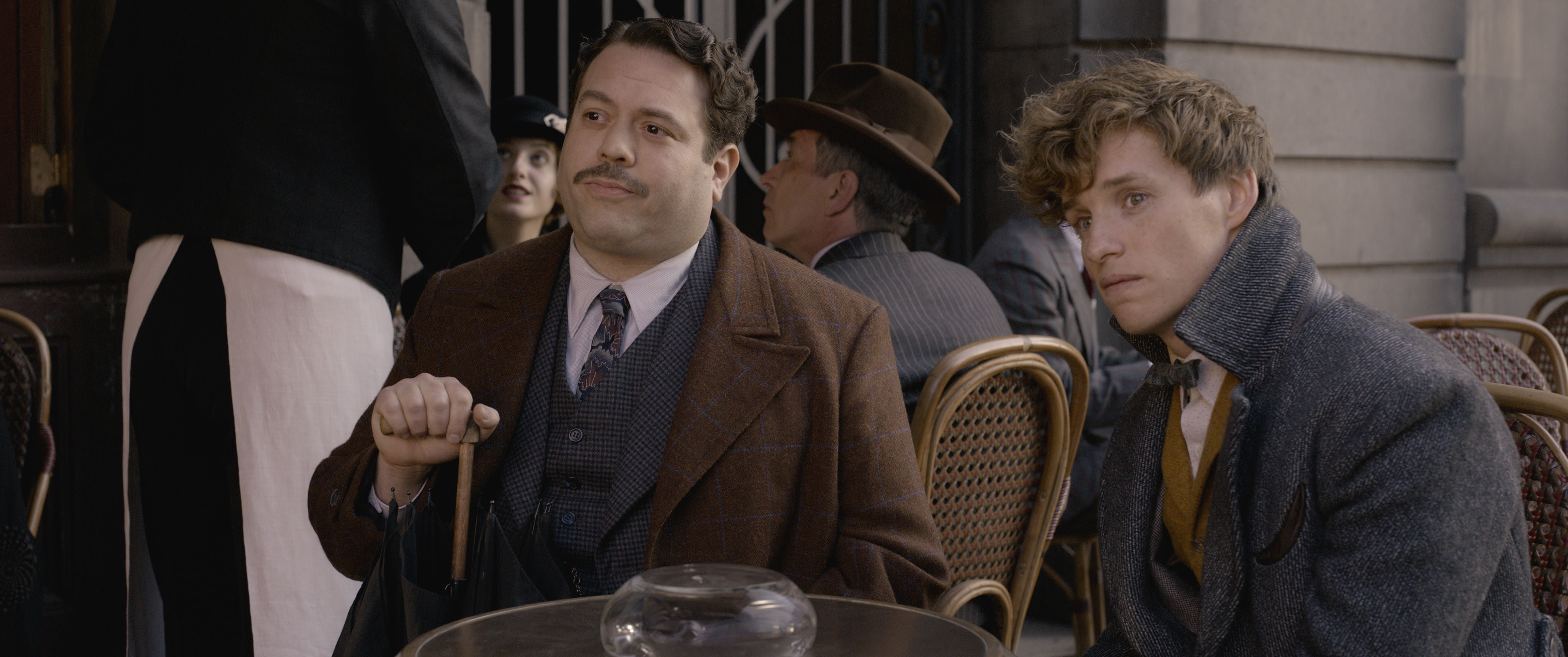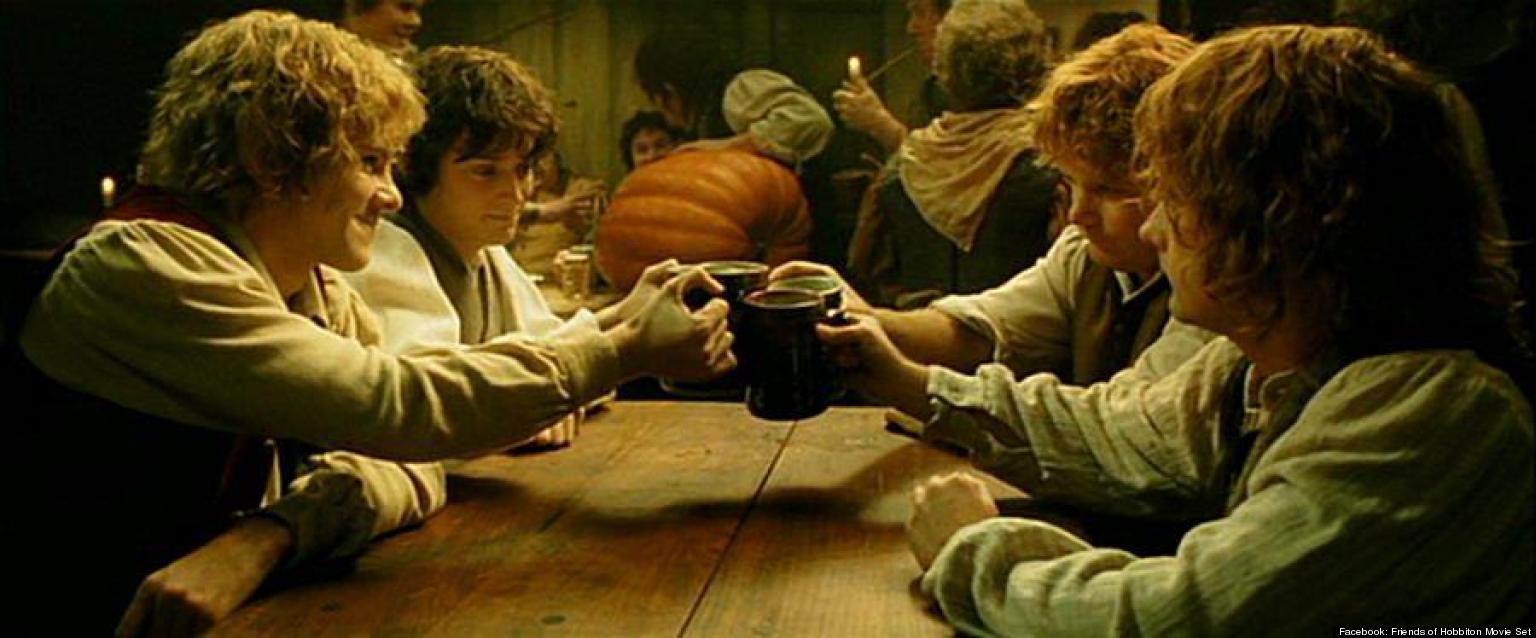The Fantastic and Felicitous Fictional Character Tag
Goody-two-shoes: A character who was just morally good
Matthew Cuthbert
Richard Farnsworth as Matthew Cuthbert
Everyone needs a man like this in their life. Matthew Cuthbert is one of the very first characters you meet in Anne of Green Gables. He's on his way to pick up what he thinks is a young orphan boy from the train station. Instead, he finds a skinny 12-year-old girl with fiery red hair and the ability to keep up both sides of the conversation at once. Even though she's not what he expected, he brings her home to the beautiful Green Gables and the rest is literary history.
Matthew is a quiet and gentle character who doesn't speak that much but his presence is felt and the kindness that radiates from him leads to some of the sweetest scenes in the book. Why is he so morally good? He just is. Logic would have dictated leave Anne there, and send her home on the next train. Instead, he took her home, let her talk her mind out about the island, the house, and whatever flitted through her mind. He subtly intimated to his sister Marilla that he wanted Anne to stay. He buys Anne her first beautiful party dress. They sit by the fire and talk. He consoles Anne when she's banned from speaking to her best friend. He encourages her curiosity and inquisitiveness. Matthew's death rips Anne apart. He was the first person who ever noticed her, whoever took care of her. He was the first person who ever loved her. And it changed her life, forever.
Heartbreaker: A character who made you cry
Uncle Billy
Parrot: A character who won't stop talking
Beatrice
There were so many people I could have chosen for this one, but Ivy took my number one character (Benedick of Padua) so I chose his number one sparring partner, Beatrice. Benedick and Beatrice are two of the main characters in Shakespeare's "Much Ado About Nothing". They are incessantly in a war of wits, words, and one-ups. Sometimes they just try to do each other by seeing who can get the most word wedged into a conversation before the other can break in.
While the two never shut up, they do end up becoming a happy couple at the end but even in front of God and everyone, they still refuse to confess their love until they're pretty much kicked into it. Benedick says he's taking her out of pity. Beatrice gets the last word when she tells Benedick she's only marrying him because she heard he was in a consumption - dying of tuberculosis. But as you can see from the picture above, they're both healthy and happy. But a simple "I do" just won't do for those two.
Devilish: Your favorite villain
Q
Love interest: A character who, if alive in reality,
you would want to marry
Konstantin (Kostya) Levin
Konstantin Levin is probably not a name most people know unless you're a reader of Leo Tolstoy. He's a character in my all-time favorite book, Tolstoy's "Anna Karenina". (Now a side note: I've only ever seen one faithful adaptation of Anna Karenina and it's an old one in Russian. No one in the English-speaking world gets it right. The one with Kiera Knightly was awful overall, but Domhall Gleeson as Kostya was fantastic.)
Sidekick: A character who was always loyal no matter what
Jacob Kowalski
There were so many people I could have chosen for this one but in recent years, Jacob Kowalski, from "Fantastic Beasts" is one of my favorites.
Jacob Kowalski is one of the few Americans in the Wizard World. He's a New Yorker Nomaj (American) or Muggle (British) meaning he has no magical abilities and no knowledge of the magical world. Until he runs into Newt Scamander at the bank. Jacob dreams of opening his own bakery but is flatly rejected for a loan. He picks up something that Newt left behind when he went running after one of his escaped pets. Newt ends up Apparating (transporting from one place to another) and taking Jacob with him. He intends to Obliviate Jacob's memory, wipe out memories of magic, but before he can, a confused Jacob decks Newt and grabs what he thinks is his own briefcase. Later on, in his apartment, he opens it up, expecting to find pastries. Instead, he turns twenty-some magical creatures loose in New York City. Newt catches up with him and calmly takes him into the magical suitcase. He sees nothing of having a Nomaj with him, even though it's strictly forbidden in the United States. Jacob is fascinated by everything and is right in the thick of it the entire time.
The boys team up with sisters Tina and Queenie Goldstein and he and Queenie hit it off immediately. They leave New York in a bit of a shambles as they decimate Central Park and the zoo while looking for Newt's creatures, destroy a jewelry shop, take out the entire top floor of Macy's, cause a brawl at a magic speakeasy, escape from prison at MACUSA, flatten most of Manhatten, and destroy about 50% of the New York subway system. In the end, Jacob does end up Obliviated but a mysterious passerby drops a suitcase in front of him as he leaves work one day. In it are solid sliver eggs, more than enough for Jacob to start his bakery. And the star attraction is all of his incredible pastries of animals that seem - well, magical. And then there's the girl that walks in at the end...
Complicated: A character you love and hate
Quark
For this one, we return to Star Trek and head to the Space Station Deep Space Nine. There, at Quark's Bar and Grill, you'll find the proprietor, one of the sneakiest, slimiest, and occasionally heroic people on the station.
The incomparable Quark
Quark is a member of a race called the Ferengi. They're distinguished by their bulging bald heads and gigantic ears. The Ferengi are motivated by one thing and one thing only, profit. Rather than laws, they have The Rules of Acquisition. Instead of a parliament, they have the Tower of Commerce. Instead of a president, they have The Grand Nagus. In a society where the Federation has ceased to use money, the Ferengi stick out for their desire for gold-pressed latinum, profit, and material possessions. They lie, cheat, steal, and claw their way to the top. Punishment is the removal of business licenses and the inability to trade in the Ferengi commerce structure.
Odo and Quark, the best of frenemies
Quark is a bit of an enigma. He lives on Deep Space Nine, surrounded by mostly Bajorans and Humans. He runs the local bar with his brother Rom and nephew Nog, whom he treats like idiots. He's the one with the lobes for business. The bar is one of the central points on the station and everyone hangs out there for food, drinks, Dabo, darts, or holosuites. Despite the desire for profit, Quark runs one fine establishment. Not many people trust Quark though, as he also ran the bar when the Cardassians, the enemies of the Bajorans, ran the station. Ferengi loyalty can be bought for enough latinum and Quark is always looking for a quick profit. He's also been known to run a smuggling operation or two and the chief constable, Odo, keeps a close eye on him. Quark and Odo have a love-hate relationship that provides some of the most hilarious scenes in the show. As time wears one of the most disturbing things begins to happen. Quark starts to develop a conscience. Considered a fault of the "Hew-mahns", Quark's development of a moral side is a shock, not just to him but to others. He willingly gives up profit to help others, saves Odo's life, becomes an informant when the station is occupied by the Cardassians and takes the side of the Federation in the final battle with no thought to his own safety or profit. Just don't let the rest of the Ferengi Commerce Guild know.
Oddity: A character who was strange but you loved them anyway
Hercule Poirot
You wouldn't expect your favorite odd character to be the lead in one of the most successful book and television series in history but yet, here we are.
Hercule Poirot is the central figure in Agatha Christie's world-famous series. He's a retired Belgian detective who emigrated to England after the royal houses of Europe began to collapse in the early 20th century. He settled on one of the more affluent areas of London and set up practice as a private detective. But Sherlock Holmes he is not. In fact, he frequently pokes fun at him. Order and method - that's Poirot's catchphrase. Rather than tromp out around the crime scene looking for clues only in broken branches and footprints, he tries to get into the psychology of the criminal. The use of his "little gray cells" is what works for him. As you can imagine, Poirot is a man of precision. He's always dressed to the nines with his famous mustache, waistcoats, bow ties, spats, watch chain, matching gloves, and bowler hats. He minces rather than walk so he doesn't muss his pants and he carries a handkerchief, not so much to keep his nose or mustache tidy but rather to sit on when the available seats are questionable. His apartment is no less impressive. Not a single thing is ever out of line or out of place. A simple knick-knack askew or a slightly tilted picture will ruin his day. His tastes are as odd as his behavior. He drinks tisane, an herb tea that no one else can stand, and eats only the finest of foods. He abhors English food, mushy peas, and overcooked beef in particular. I agree with that one. He is annoyed when people refer to him as French rather than Belgian and frequently peppers his speech with little phrases of his native language. Despite his oddities, he has a sweet temperament, if a bit pompous, and a gentle smile that puts the most nervous client at ease.
Of course, he needs a crew to help him with his cases and they're as devoted to him as he is to them. First is Chief Inspector Japp of Scotland Yard, who is as unlike Poirot as he could be. At first, Poirot irks him but over time he grows to greatly respect him and seeks his help frequently. Then there is Miss Lemon, his secretary, who is always ready with the needed paperwork. Last is Captain Hastings, a retired military officer who always comes to the wrong conclusions and has a penchant for female sob stories, especially if the woman has auburn hair. Poirot is also an extremely moral man. A devout Catholic, he believes firmly in right and wrong and in the rule of law. Most of the time, the answers are easy, this person broke the law, they pay the price. Until the Orient Express. There Poirot is confronted with what happens when the law fails you? What happens when good people do the wrong thing for the right reason? What do you do when you agree with the criminal? Here, we see the other side of the odd little Belgian detective. The moral struggle, the agonizing decision, and the little gray cells that have failed him. Now he must decide as a human, caught in the middle of a human drama from which no one will ever truly recover.
Queen/King:
A female/male character who you admire and aspire to emulate
Lucy Pevensie
Little Lucy Pevensie was my first favorite character in a book. I was young, maybe 6 or 7, when my mom first read "The Lion, The Witch, and The Wardrobe" to me.
Lucy finds the lampost in the wardrobe.
Lucy is a small girl who is evacuated to the countryside of England during the Blitz of World War II London. She and her older siblings, Peter, Susan, and Edmund, end up at the huge country estate of an eccentric retired professor. While playing hide-and-seek, Lucy hides in the wardrobe in the empty room on the top floor and realizes that there's more in the wardrobe than old fur coats. There she stumbled on a world of eternal winter with fauns, witches, spells, and a host of magical creatures. When she tries to tell her siblings about her discovery they think she's playing, especially when they go to the wardrobe and there's nothing there but the plain wooden back of any other wardrobe. Lucy sticks by her story and the others soon end up in the wardrobe as well. There they realize that there is much more going on than they realized. Eustace has betrayed them to the white witch and they must get to the Stone Table to meet Aslan. The four end up being crowned the kings and queens of Narnia and spend an entire lifetime there. One day, during a hunt in the woods, the four siblings, now adults fall back out of the wardrobe, to the exact point they originally entered it. They all four would return again and Edmund and Lucy would go back a third time. In the last book, they all return together, but to another part of Narnia that they have never seen - the Shadowlands. they have died in a train crash and have returned for the last time, to stay forever.
So what is it about Lucy that I admire? Her faith. She knew she had been to Narnia, even when the wardrobe shut them out. She believed that they would return someday. She believed that they would find Aslan. She believed that Aslan would save them when they were about to lose the battle. Lucy is the model of true and childlike faith. As her faith grows, Aslan seems to get bigger. When the others don't believe she's seen Aslan, despite the fact that she was the first to go into the wardrobe and no one believed her then, Aslan comes and tells her that she must continue and follow him, even if the others will not go with her. So she does. She is the one who led the others to Aslan, more than once. Her faith, whether in their world or in Narnia, is what keeps the group both moving and safe. When her sister Susan abandons Narnia, Lucy remains true - the true queen. She lives up to her name: Queen Lucy the Valiant.
Savior: A character that reminds you of Christ
Frodo Baggins and Sam Gamgee
This one isn't just one character. Rather it's two who worked in tandem to save the world they loved.
.jpg)



























Comments
Post a Comment
Thanks for commenting! Just a few rules if you're going to post something:
Be polite. Rudeness doesn't do anyone any good.
Don't be mean or derogatory, even if you don't like something I post. It is my blog after all.